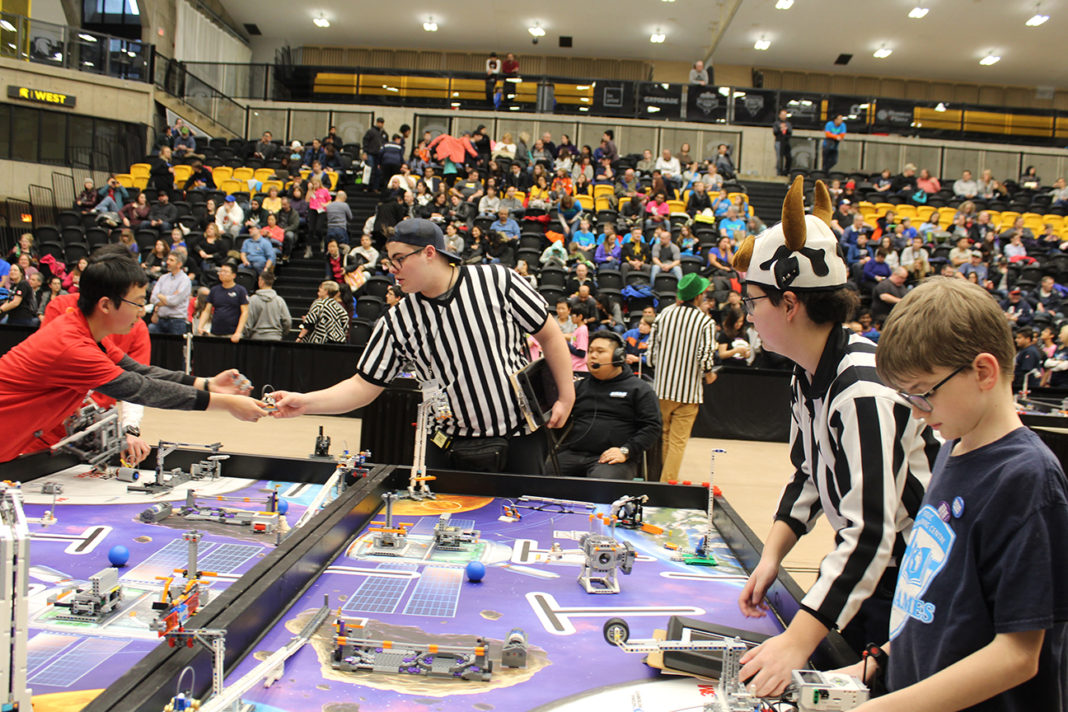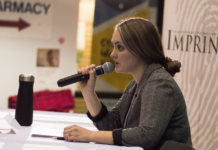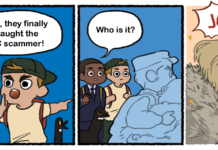University of Waterloo student, Jaeleen Koscielski has been a volunteer of the For Inspiration and Recognition of Science and Technology (FIRST) LEGO League program since she was nine years old, cheering on her older brothers. Now, she has been a volunteer in the program for seven years, and continues to give back to the program that has been a defining factor in her school career.
“I just love giving back now that I have extra time, and time to give back because I learned so much from this program and I want the next generations of students to learn the same skills that I learned,” she said.
The FIRST LEGO League West Ontario Provincial Championship took place on Feb. 9 in the PAC Gym for teams of students aged 9 to 14. Students competed with inventions that they had spent months creating in response to this year’s topic: INTO ORBIT, challenges faced by humans on long duration space flights. The challenges addressed by students included lack of air, water, and food; waste disposal; loneliness and isolation; and the need for exercise in order to stay healthy.
Mike Steffan was one of the competitors. He and his team addressed disruptions of circadian rhythms of astronauts, who see up to 16 sunrises a “day” while aboard the ISS. Their solution was a colour-changing film to be placed on the windows of the ISS.
“We’re installing a false window onto the ISS that will regulate this. So it has a diffused film on it and a black film,” Steffan said. “When it’s clear outside and it’s ‘supposed’ to be day, it’ll be clear, but when it’s dark outside but still supposed to be day, the windows will go foggy and illuminated so it looks like it’s still day outside, and then when the sun rises, it’ll just clear up again.”
Another team, the Wild Goats, created a way for astronauts to be able to grow plants while in space as a way to both provide food and purpose to astronauts.
FIRST LEGO provides competitions for students of different ages and skill levels. It also endorses six core values: discovery, innovation, impact, inclusion, teamwork, and fun. “Its goal is to get young students involved in science and technology and learning soft skills from a young age, so instead of just being in a classroom and learning math from a textbook, they’re applying that math that they’re learning in the classroom to a real life problem,” Koscielski said.
Koscielski believes that the FIRST LEGO program is especially valuable in nurturing a passion for STEM fields and creativity in solving current real-world problems in students from a young age. “Especially in this program, they really get to be creative with how they’re approaching the task, there’s a lot of different components to the competition, so they really get a feel for a lot of different things that they can apply when they go into high school or even university or college,” she said.































